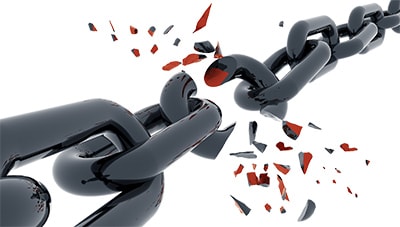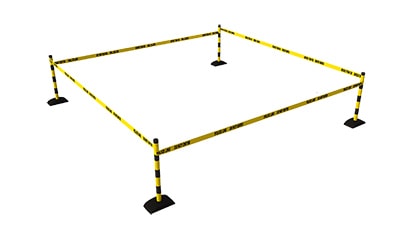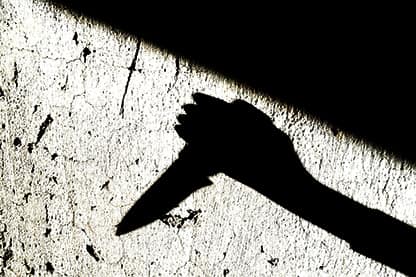Trial in UAE
 Introduction
Introduction
The UAE penal code is not entirely based on Islamic Sharia, but it does include some components. In the UAE, Sharia law exists and is used in limited situations, such as the payment of blood money. Some Sharia punishments, such as flogging, have been suspended in individual emirates and replaced with prison sentences. Refusal of a search Murder, armed violence, and libel suits are all examples of assault charges. Fraud, insolvency, and breach of confidence are examples of financial charges. Cases involving drugs, including drug distribution, possession, and use. Human rights violations and charges of intoxication while driving. Dishonesty crimes include theft, fraud, conspiracy, obtaining a financial benefit, and so on. Serious offences and claims of sexual harassment Cases of international tax avoidance and cases of rehabilitation
Proceedings
The UAE's criminal procedures are outlined in Federal Law No. 35 of 1992, as amended. It includes a set of rules that define the methodology and procedures for criminal investigations, accused trials, verdicts, requirements for appealing to higher courts, and judgment compliance.
The Public Prosecution has sole authority to launch and prosecute criminal proceedings, according to Article 7 of the Criminal Procedures Law, as amended. It also has the ability to keep track of it until a final decision is made.
The Office of the Public Prosecutor is a branch of the legal system. It assumes investigative and charging power, as well as the authority to refer the accused person to the appropriate court if his participation in the crime is proved. However, in some cases, as stated in Article 10 of the same Statute, the victim or his legal representative must file a written or verbal complaint before a criminal action can be filed. There are some examples:
- refusal to deliver a minor to or removal of a minor from the custody of his or her custodian
- Defamation, defamation, and other crimes as defined by law
- Whether the victim is the perpetrator's spouse or one of the perpetrator's ascendants or heirs, and the profits are not confiscated judicially or administratively or encumbered by a lien in favour of another party, the perpetrator is guilty of fraud, breach of confidence, and concealment of the proceeds.
Unless otherwise made by statute, a lawsuit would not be considered in the above cases until three months from the time the victim learned of the crime and the party that committed it. If the accused is apprehended in the act, the case can be filed with any public authority officer (e.g., a police officer) who is present at the scene.
If there are multiple victims of a crime, a single allegation from one of them is enough to start criminal proceedings. If more than one person has been charged with a crime and a lawsuit has been lodged against one of them, the complaint also extends to the other accused.
If more than one person is accused of committing a crime and a lawsuit is lodged against one of them, the complaint also refers to the other accused. The case must be filed by their legal guardian if the victims are under the age of 15 or are mentally challenged or if the crime was committed against their house.
If the victim and his attorney have a conflict of interest, or if the victim has no one to defend him, the public prosecutor will step in. The investigation is conducted in Arabic by the public prosecutor. If the accused, litigants, witnesses, or others whose comments are considered important by the public prosecutor do not speak Arabic, the prosecution may request the assistance of an interpreter after the oath is taken.
Lapse of criminal actions
If the victim withdraws his lawsuit, the court case is over. When there are several victims, criminal prosecution will be dropped if any of the victims who filed the lawsuit withdraw it. If more than one person is convicted in a criminal case, the dismissal of one of the charges affects the others as well.
If more than one person is convicted in a criminal case, the dismissal of one of the charges affects the others as well. The criminal case either ends when the accused dies, a final judgment is issued, the party that has the legal right to do so withdraws their legal action, an amnesty is issued, or the legislation that punishes certain actions is repealed.
Criminal cases expire after 20 years in the case of felonies (serious crimes) punishable by death, ten years in the case of all other felonies, three years in the case of misdemeanours, and one year in the case of violations.
Tracking down suspects and collecting evidence
Inspections and evidence processing are the responsibility of judicial officers from various government agencies. Legal officers from the Police Department, the Public Prosecution Service, and the Criminal Courts are among them. Moreover, under Article 32 of the Criminal Procedures Statute, a number of other people are allowed to collect evidence in criminal investigations. They are as follows:
- immigration officers
- border police
- coastguards
- Inspectors from municipalities and inspectors from the Ministry of Health and Prevention.
- armed forces officers
The Role of Public Prosecution and Police
The job of the police is to protect the public, obtain preliminary statements from complainants and witnesses, apprehend suspects, conduct investigations, and carry out orders from the Public Prosecution to assist in the investigation process.
In the United Arab Emirates, criminal actions begin with a report to the local police in the jurisdiction where the crime was committed. Police may take statements from all parties involved during the investigation. Within 48 hours of filing a report, local police normally refer the case to the prosecutor's office.
According to Article 47 of the Constitution, the Public Prosecution must interview the accused within 24 hours and then order his arrest or release.
Individual rights and responsibilities
The people's integrity is protected by the UAE's justice system. An accused person is presumed innocent unless proved guilty under criminal procedure law. As a consequence, when dealing with criminal cases, it follows those protocols. They are as follows:
- Anyone who sees the perpetrator committing a crime or misdemeanour should promptly report him to the nearest public authority. An arrest warrant is not required.
- Law enforcement officers, such as cops, are not permitted to access a person's home except under the conditions set out in this law or in response to a request for assistance from a resident who may be facing a serious threat to his life or property.
- No one may be arrested, searched, held, or imprisoned unless the law specifies the circumstances and conditions.
- Without a complaint or a request, anybody who knows of the occurrence of a crime against which the public prosecutor may bring a criminal suit must report it to the public prosecution or judicial officers.
- Only places designated for that purpose and for the duration stated in the warrant issued by the competent authority can be used for detention or imprisonment.
- No criminal punishment may be levied before a person's guilt has been proven in accordance with the law.
- The accused will petition the court to reimburse him for the prejudice he has suffered as a result of the victim's or accuser's false accusation.
Attorney-client rights
 At the trial stage, anyone accused of a felony (or a serious crime) punishable by death or life imprisonment can hire a lawyer to defend him. If the accused does not employ a lawyer, the court will appoint one for him, whose fees will be covered by the state according to the statute.
At the trial stage, anyone accused of a felony (or a serious crime) punishable by death or life imprisonment can hire a lawyer to defend him. If the accused does not employ a lawyer, the court will appoint one for him, whose fees will be covered by the state according to the statute.
After proving his financial inability to employ a lawyer, the accused of a crime punishable by temporary imprisonment can also petition the court to provide him with an attorney in his defence.
The investigation and arrest of the suspect or convict
When a judicial officer arrives at a crime scene (or if an individual has been caught red-handed), he or she must prohibit anyone present from leaving or leaving before a report has been written. The officer may also summon anybody who may have additional information about the incident to provide a statement right away.
Under the circumstances stated in Article 45 of the law, if there is sufficient evidence of the accused's involvement in the crime, the judicial officer can order his arrest if he is present at the scene.
If the defendant is not present, the judge may issue an arrest warrant, which must be specified in the report. One of the public authority officers should execute the arrest warrant. The accused's comments should be heard by the judicial officer as soon as possible after his detention. If the accused fails to provide evidence proving his innocence within 48 hours, he should be referred to the appropriate public prosecutor. Within 24 hours, the Public Prosecution will interview him and either arrest or release him.
The search of residences and people
The judicial officer should search the accused in situations where his arrest is legal, and the accused may be frisked for something relevant to the crime or necessary for the investigation on his body, clothing, or property.
If the accused is a woman, the search should be conducted by a female judicial officer who has taken an oath. Female witnesses should also be present at the inspection. The defendant's home could not be searched without a search warrant from the public prosecutor unless the defendant was caught red-handed, and there were clear indications that the defendant was hiding items or documents that might reveal the truth in his home.
The search and seizure of items and documents should be performed in compliance with the statute.
Punishment for any criminal offence
According to the Penal Code, each offence carries a different punishment depending on the severity and nature of the offence. The following are the penalties for some of the most common offences in the country:
- Theft – The Penal Code's Chapter Eight specifies the punishments for theft, with the highest sentence being life imprisonment;
- Cheque bounce – Someone who writes a bad cheque will be sentenced to prison and fines as per Article 401;
- Felony – The act of crime may be punishable by death, incarceration for a period of time, or life imprisonment;
- Misdemeanour – Article 29 of the Penal Code stipulates that committing a misdemeanour is punishable by incarceration, a fine of more than AED 1,000, and the payment of blood money.
Filing an Appeal
Any party who disagrees with the judgment of the Court of First Instance may appeal to the Court of Appeal and then appeal to the Court of Cassation against the Appeal Court's decision.
The accused has 15 days from the date of the Court of First Instance's decision to file an appeal. In contrast, an appeal to the Court of Cassation against an Appeal Court ruling has a 30-day deadline.
It is important to remember that a victim cannot appeal a lower court's decision because, following approval of the appeal, the public prosecutor represents the complainant and has the power to file an appeal if the plaintiff is aggrieved by the decision.
Deportation
A foreign expatriate convicted of a crime may be deported from the country under a number of circumstances. The following are several ways in which the UAE Penal Code requires a court to issue a deportation order:
- Religious and creed-based crimes;
- Possession of narcotic drugs cases;
- In the case of a crime or misdemeanour under Article 121.
 Duration of a criminal proceeding
Duration of a criminal proceeding
The amount of time it takes to receive a criminal court decision is largely dependent on the facts of the case and the court's discretion.
Court Fees
In comparison to civil claims, a petitioner is not required to pay legal or court costs in order to file a lawsuit against an accused person. However, if you need legal representation before the criminal courts, you will have to pay an attorney fee.
 عربي
عربي
 English
English Русский
Русский 官话
官话 português
português
 Türk
Türk 



























